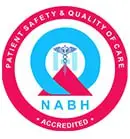When it comes to diagnosing kidney disease, imaging tests play a crucial role in providing a comprehensive view of the kidneys. These non-invasive procedures allow healthcare professionals to assess kidney structure, identify abnormalities, and determine appropriate treatment plans. But it’s important to choose the Best MRI Centre in Jasola Vihar so that no new problem arises due to inaccurate results or poor-quality scans. Additionally, if your doctor recommends a basic imaging test, you can also visit a trusted X-Ray Centre Near Apollo Hospital for quick and reliable diagnostic services.
Ultrasound Imaging:
Ultrasound imaging, also known as sonography, is a widely employed technique for evaluating kidney health. It utilizes sound waves to create real-time images of the kidneys. During the procedure, a small handheld device called a transducer is moved over the abdomen, emitting sound waves that bounce off the kidneys and create detailed images. Ultrasound imaging helps identify kidney size, shape, and any structural abnormalities such as cysts, tumours, or obstructions. It is a safe, painless,
and cost-effective imaging modality that provides valuable insights into renal health.
CT Scan:
Computed Tomography (CT) scan is a powerful imaging tool that produces detailed cross-sectional images of the kidneys. It involves the use of X-rays and advanced computer algorithms to create a three-dimensional view of the kidneys. CT scans help identify kidney stones, tumours, infections, and other structural abnormalities with high precision. Although CT scans provide valuable diagnostic information, they involve exposure to ionizing radiation and are typically reserved for cases where a more detailed assessment is required.
MRI:
Magnetic Resonance Imaging (MRI) is another imaging technique that can provide detailed images of the kidneys without using radiation. By utilizing powerful magnets and radio waves, MRI scans generate highly-detailed images of kidney structures and surrounding tissues. MRI is particularly useful in detecting tumours, evaluating blood flow, and assessing kidney function. However, it may not be suitable for individuals with certain metallic implants or claustrophobia due to its confined space.
Renal Scintigraphy:
Renal Scintigraphy, or nuclear imaging, involves the injection of a small amount of radioactive material into the bloodstream. Special cameras then detect the emitted radiation and produce images that highlight kidney function and blood flow. This test is especially helpful in evaluating kidney function, identifying obstructions, and assessing the overall health of the kidneys. Renal scintigraphy provides valuable functional information that complements the structural details obtained from other imaging tests.
Conclusion:
Imaging tests are invaluable tools in diagnosing and managing kidney disease. From ultrasound to CT scans, MRI, and renal scintigraphy, each imaging modality offers unique insights into renal health, aiding healthcare professionals in formulating appropriate treatment plans. All these facilities are available in X-Ray Centre Near Apollo Hospital Srivastava MRI & Imagining Centre. Early detection and monitoring through these tests contribute to improved outcomes and better overall kidney health.
Also know about:- BRAIN IMAGING AFTER SURGERY | How to Keep Your Heart Healthy?



